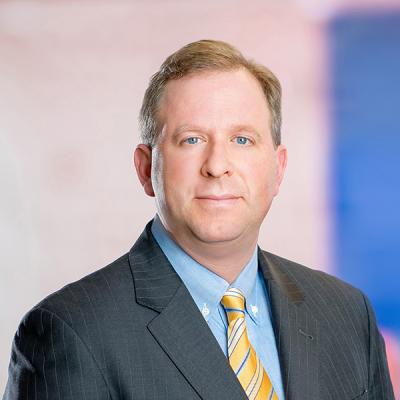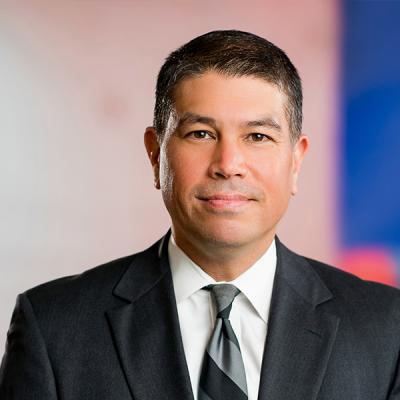Vice President Vance Delivers Remarks at AI Summit, Overviews AI Priorities — AI: The Washington Report
- On February 11, Vice President JD Vance delivered remarks to world leaders, policymakers, and technology executives at the AI Action Summit in Paris, France. His speech provided a public look into how the Trump administration views AI and the government’s role regarding AI.
- Declaring that he was in Paris to talk not about “AI safety” but about “AI opportunity,” the vice president laid out four priorities for the Trump administration’s approach to AI: 1) to ensure that American AI technology is the gold standard globally, 2) to avoid excessive AI regulations, 3) to remove ideological bias from AI, and 4) to chart a pro-worker growth path for AI.
- Vice President Vance’s speech comes as the Trump administration’s deregulatory approach to AI is beginning to take shape. The new administration is currently developing an AI Action Plan focused on “[enhancing] America’s global AI dominance” and reviewing existing AI policies.
On February 11, Vice President JD Vance delivered remarks to world leaders, policymakers, and technology executives at the AI Action Summit in Paris, France. Beyond President Trump’s Executive Orders, the vice president’s speech provided a look into how the Trump administration views AI and the government’s role regarding AI. Vance laid out four priorities for the administration’s approach toward AI:
- To ensure that American AI technology is the gold standard globally;
- To avoid excessive AI regulations;
- To remove ideological bias from AI; and
- To chart a pro-worker growth path for AI.
The vice president’s speech comes as the details of the Trump administration’s plans toward AI are beginning to take shape. As we’ve covered, the new administration is currently developing an AI Action Plan focused on “[enhancing] America’s global AI dominance” that will be announced by mid-July 2025. Vance’s speech provides a window into the potential policies and regulations – or lack thereof – that may comprise the AI Action Plan.
AI Opportunity, Not AI Safety
Vance opened his speech by declaring that he was in Paris to talk about “AI opportunity,” not “AI safety.” “When conferences like this convene to discuss a cutting-edge technology,” according to the vice president, “oftentimes, I think our response is to be too self-conscious, too risk-averse. But never have I encountered a breakthrough in tech that so clearly calls us to do precisely the opposite.”
Vance’s focus on promoting AI opportunities while removing safety regulations that are criticized for stifling innovation is in line with the actions that the administration has already taken on AI. As we’ve covered, the administration is currently reviewing all AI actions, including safety regulations, taken by government agencies pursuant to former President Biden’s AI Executive Order. President Trump has announced over $500 billion in private investments into AI infrastructure, and he has vowed to use his emergency powers to expedite the permitting approval process for such projects.
Four AI Priorities
Vance outlined the new administration’s four guiding AI priorities:
- Secure American AI Dominance: Vance stated that it is the administration’s priority to ensure that “American AI technology continues to be the gold standard worldwide.” To cement America’s lead in the AI race against China, “the Trump administration will ensure that the most powerful AI systems are built in the U.S. with American designed and manufactured chips.” He also pledged to “safeguard American AI and chip technologies from theft and misuse” by foreign adversaries and “work with our allies and partners to strengthen and extend these protections.”
- Avoid Excessive Regulations: The Trump administration believes that “excessive regulation of the AI sector could kill a transformative industry just as it’s taking off,” according to Vance, “and we’ll make every effort to encourage pro-growth AI policies.” Vance said that the AI Action Plan aims to “[avoid] an overly precautionary regulatory regime while ensuring that all Americans benefit from the technology and its transformative potential.” Vance differentiated the United States’s approach to regulating AI from that of Europe, where “companies are forced to deal with the EU’s Digital Services Act and the massive regulations it created.”
- Remove Ideological Bias from AI: Vance remarked that “AI must remain free from ideological bias.” Vance accused governments, businesses, and nonprofit organizations of advancing “ahistorical social agendas through AI” and suppressing free speech. The Trump administration “will ensure that AI systems developed in America are free from ideological bias and never restrict our citizens’ right to free speech.”
- Chart a Pro-Work Growth Path for AI: The Trump administration aims to promote “a pro-worker growth path for AI so that it can be a potent tool for job creation.” Responding to concerns that AI will replace American jobs, Vance pledged to prepare the US labor force “to use AI to its fullest extent,” which will “attract the attention of businesses that have offshored some of these roles.” Vance also promised to make sure “America has the best-trained workforce in the world” and that schools teach people “how to interact with AI-enabled tools.”
The four priorities that Vance outlined are expected to shape the administration’s AI Action Plan. As we’ve covered, the White House Office of Science and Technology Policy is currently accepting comments for the AI Action Plan, which must be submitted by March 15, 2025.
We will continue to monitor, analyze, and issue reports on developments about the Trump administration’s approach to and policies for AI.

Trump Administration Seeks Public Comments for AI Action Plan — AI: The Washington Report
February 12, 2025| Article|
Authors
Bruce D. Sokler
Member / Co-chair, Antitrust Practice
Alexander Hecht
ML Strategies - Executive Vice President & Director of Operations
Christian Tamotsu Fjeld
Senior Vice President




